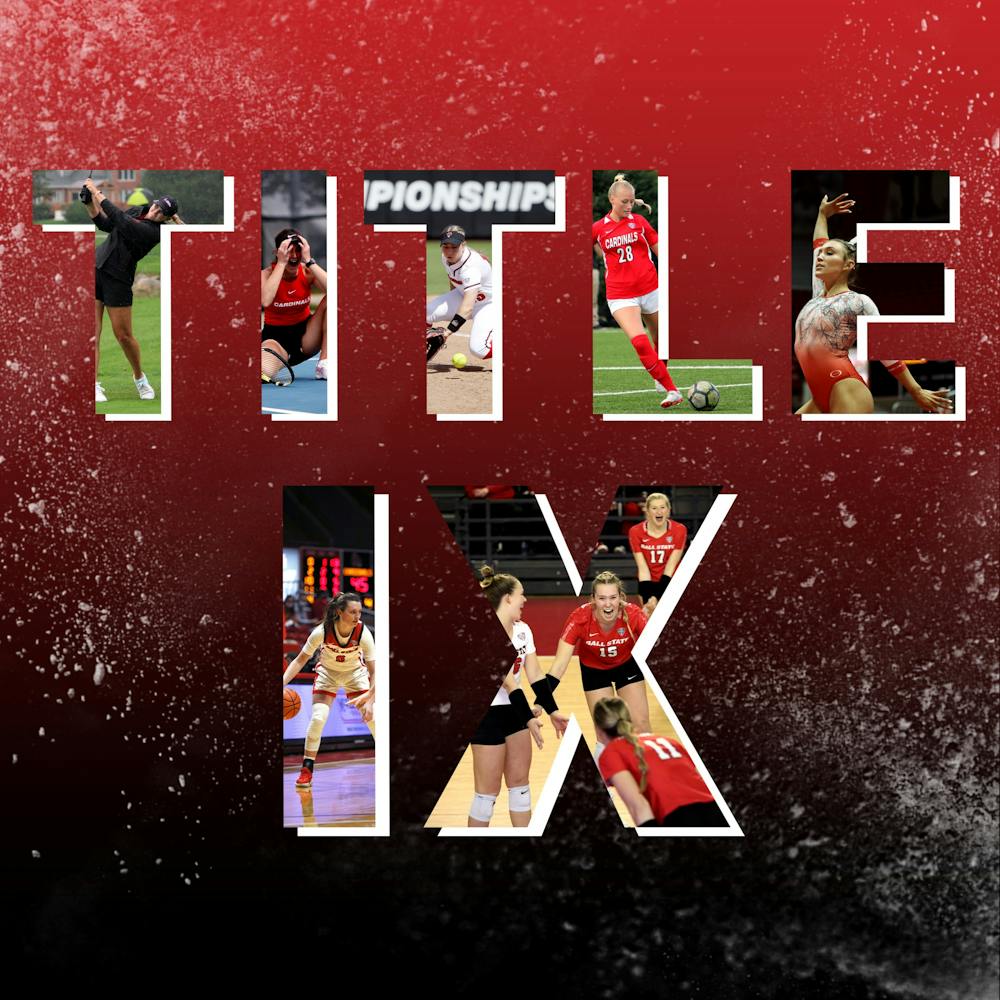June 23, 2022, marks the 50th anniversary of Title IX, a federal civil rights law passed in the Education Amendments of 1972. Title IX prohibits sex-based discrimination in any school or educational program that is given funding by the government.
In the world of athletics, Title IX helped give female athletes equal opportunity in all educational-based athletics.
“We would not be in the position that we are today without the passage of Title IX,” Ball State women’s volleyball head coach Kelli Miller Phillips said. “Sometimes you can take it for granted because we've lived in the era where we've been able to do everything and have been afforded the same type of things that the men’s side has. I think having this anniversary is a great time to look back and remember how far we’ve come and to remember the privilege of being able to play sports to represent Ball State.”
Beth Goetz, Ball State University’s current director of athletics, played in Clemson University’s inaugural season of women’s soccer when she transferred to the program in her junior year of college.
“The sport I played was still growing [at the time] and they were still starting programs around the country,” Goetz said. “I'm not sure, as a young kid, I understood the context of how we got there. But we knew that opportunities for collegiate teams were growing at the highest level.”
According to the Women’s Sports Foundation, there were fewer than 30,000 women competing in college sports before Title IX was passed in 1972 – in 2021 that number has grown to more than 200,000.
Ball State Athletics has stated three pillars it wants to focus on during the 50th anniversary year: education, recognition and engagement.
“Title IX over time has provided an incredible amount of opportunity, obviously, for women to not only just as student athletes to compete but to serve other roles in and around athletics for both students and staff,” Goetz said. “We want to continue to make sure that we're providing equitable experiences for everyone and recognizing everyone for their efforts and rewards. Our young women today don't remember a time when support wasn't available for them in high school and at the college level. I think it's important that they understand that there were many, many people that had to advocate and certainly pass legislation that provided this opportunity to come here…We want them to understand the history so how far we've come and how these opportunities look for them.”
The legislation sparked a movement for equal opportunity that extended to all areas of education and even into sports media.
Former ESPN Anchor Betsy Ross, Ball State University class of 1972, always loved journalism and always loved sports, but was doubtful of a career in sports journalism before seeing Phillis George covering the NFL.
“That was the first time that I ever saw somebody put two and two together that looked like me, Ross said. “She was the first female that I saw that was doing what I wanted to do and gave me the idea in my head that well, maybe I can do that too. She showed me a way that I could put the two together.”
When Ross began at ESPN in 1997 there were around 55 anchors across all networks and platforms and only five were women – today it is common to see female anchors hosting shows and reporting
“So now, of course, it's natural to see women anchoring on ESPN and it opened up the doors for so many more women to cover sports,” Ross said. “When we see a woman covering sports, it's not unusual, you kind of glance up and you see it and go on it's not unusual. It's not something that really stands out.”
Ross said she still gets a kick out of talking to other female sports journalists about their treatment as members of the media early in their sports journalism careers.
“We always laugh when we compare notes and we go, ‘Oh, you got kicked out of a locker room too?’, or ‘you got kicked out of a press box too?’,” Ross said. “That happened to a lot of us that even though we had every right to be in a locker room or every right to be in a press box, you know, a lot of times we got kicked out.”
Despite 50 years of Title IX, there is still more to do in striving for equity across sports, Phillips said media coverage and notoriety are large areas for improvement.
“I would like to see women's sports continuing to be getting the same type of notoriety, the same type of media coverage, the same type of salaries, the same type of opportunities that are that the men are also getting,” Phillips said. “So whether that's from the name, image and likeness opportunities, whether that's from just the budgets and where money is allotted. It's not just a Ball State specific thing, this is a very broad scope thing for all of athletics across the country.”
Contact Daniel Kehn with comments at daniel.kehn@bsu.edu or on Twitter @daniel_kehn.





